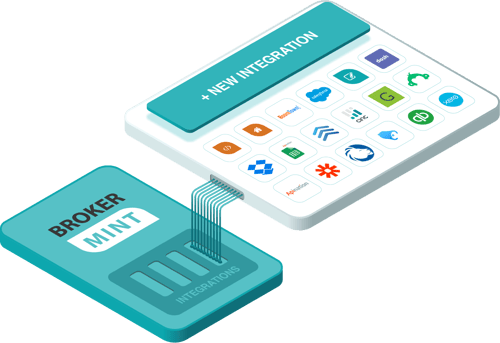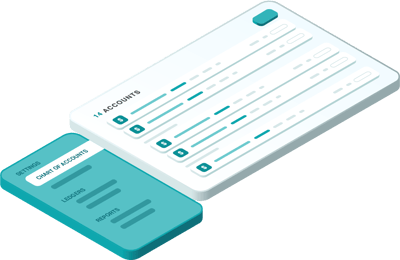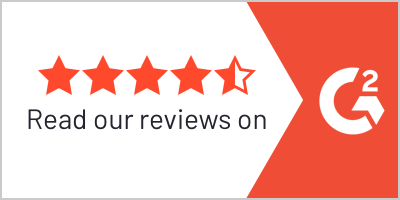Do you want to simplify your real estate accounting?
 While real estate accounting is crucial to your business, it’s also complicated. Plus, real estate accounting needs are more specialized than general accounting demands. This makes it easy to make mistakes. However, accounting errors can be costly for your business—in terms of money and top agents. Plus, any accounting mistakes can create a headache come tax time and audit time.
While real estate accounting is crucial to your business, it’s also complicated. Plus, real estate accounting needs are more specialized than general accounting demands. This makes it easy to make mistakes. However, accounting errors can be costly for your business—in terms of money and top agents. Plus, any accounting mistakes can create a headache come tax time and audit time.
An easier way to handle the specialized needs of real estate accounting is with specialized real estate accounting software, which makes accounting a breeze. And, reduces the chance of costly errors.
But, how do you find the right real estate accounting software for your business?
With so many options and features, it can be hard to figure out what you actually need in real estate accounting software. In this post, we’ll discuss the key features you need in real estate accounting software.
Wondering what you should look for in real estate accounting software? Read on to find out.
Perhaps most important aspect of your real estate accounting software, beyond its core functionality, is ease of use. Accounting is already complicated enough. Your accounting software shouldn’t make it more complicated.
Instead, it should simplify the process and make it easier for your team. That way, you and your team can spend less time on accounting and more time working with clients.
To be easy to use, real estate accounting software should have a simple and intuitive user interface. This makes it easy to navigate. And, your accounting software should make specialized real estate accounting tasks (like agent billing, commissions, and agent and transaction ledgers) simple and fast.
Choosing an easy to use real estate accounting software can make your accounting simple and more effective.
Another key feature you should look for in your real estate accounting software is integration with other programs. Your accounting doesn’t exist in a vacuum. Instead, it’s an integral part of your back office, which includes transaction management, agent management, commissions, and more. And, your accounting might also part of the system your CPA or bookkeeper uses – like QuickBooks.
If your accounting system doesn’t integrate with the rest of your tech stack, you’ll have to manually enter your accounting data multiple times. This increases the risk of costly errors.
So, you need real estate accounting software that integrates with your other software. And, that integrates with other accounting software your CPA or bookkeeper uses, such as QuickBooks.
You could choose an accounting software with good integration. But, an even better option is to choose a complete back office solution that includes accounting and works with QuickBooks. That way, your accounting software integrates seamlessly.

Along with being easy to use and integrating with other tech, your real estate accounting software should be cloud-based. Localized accounting software makes it hard to share accounting data across your team. And, it makes it difficult for more than one person to work on accounting. And access from home? If it's not cloud-based, that means clunky old VPN or no access at all.
Cloud-based real estate accounting software isn’t stored on one computer. Instead, your accounting data is securely stored in the cloud. So, you and select members of your team can access all your accounting data on any device at any time, as long as they have an internet connection.
Another real estate accounting software must-have is automation. This can be a complementary feature to integration in that it saves you time from manual processes.
Accounting is traditionally a highly manual process and involves a lot of data entry, which is even truer for specialized real estate accounting. This manual data entry is prone to errors, which can be costly. And, this manual process is time-consuming—taking your team away from their other responsibilities.
To avoid this error risk, you should look for real estate accounting software that automates this manual data entry. So, instead of your team having to spend hours entering all accounting data, your accounting software can do it for you. And, this automation is more accurate than human entry—reducing your accounting errors drastically.
 Your real estate accounting software should also have commission calculation and tracking. Disbursing commissions can be difficult with each agent or team having a custom and often complicated commission structure. Uneven commission splits make it more challenging—especially if you’re trying to track everything in a spreadsheet.
Your real estate accounting software should also have commission calculation and tracking. Disbursing commissions can be difficult with each agent or team having a custom and often complicated commission structure. Uneven commission splits make it more challenging—especially if you’re trying to track everything in a spreadsheet.
Real estate accounting software can calculate commissions for you—based on your custom commission structure. And, this software allows you to set up commission tiers for your agents and factor in fees.
Then, all of that commission data should also be in your accounting ledgers. This is easy to do if your system is built for real estate accounting.
The last key feature your real estate accounting software should have is the ability to create analytical reports. Manually compiling all your accounting data into a spreadsheet to analyze trends can take hours. And, the sheer volume of data makes errors more likely.
Both of these problems make it hard to generate reports and have insight into the financial health of your business. But, accounting software with automatic reporting and analytics can automatically generate reports for you. And, your accounting software should generate real estate specific reports from the general ledger, transaction ledger, and agent ledger.
So, you can create reports, specifically for real estate accounting, at any time—giving you greater visibility into the financial health of your business.
The best way to make accounting more efficient and accurate is to use specialized real estate accounting software. But, which platform is right?
Knowing what to look for can help make the process easier. And, ensure you choose the best software for your business. The right accounting software should be easy to use, integrate with other tech, be cloud-based, have automation, track commissions, and generate real estate specific reports.
Choosing real estate accounting software with all these characteristics ensures you’ll make a smart choice.
 But, why pay for a stand-alone accounting software along with your other back office software? Instead, you could choose a complete solution that covers all your back office needs—including accounting.
But, why pay for a stand-alone accounting software along with your other back office software? Instead, you could choose a complete solution that covers all your back office needs—including accounting.
Consolidating your tech stack with a complete back office solution like Brokermint® can help you cut costs and improve efficiency. Brokermint is an easy to use, complete cloud-based solution for the residential real estate back office.
With Brokermint’s five modules—transaction management, commission automation, accounting, agent management, and reporting and analytics—you have everything you need to manage your back office in one platform.
Learn more about how Brokermint can help you with your accounting and other back office needs today.

Schedule a demo and see your back office with Brokermint.